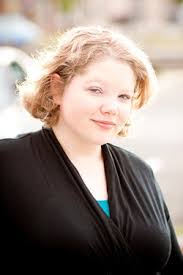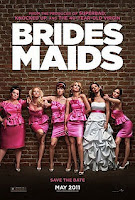It's guest Monday! Today we have one of our regular monthly contributors, the lovely and talented Ashley March (who will soon be known as Elise Rome for her new novels!)
Ashley is starting a new blog series here to help you out with those fine tuning things in your manuscript. Be sure to look for her tips each month. First up...dialogue.
You Can Fix ItNow: Five Dialogue Mistakes
by Ashley March
Sincebecoming a published author, one of the things I’ve tried to do as a way of“giving back” to the writing community is to offer critiques to other writers.Sometimes these come through auctions, sometimes through networking when I offera critique to someone who’s made an impression on me. I’ve learned a lot in thepast few years I’ve been writing and critiquing, and I’d like to start sharingwith you the most common mistakes I find in the manuscripts of aspiring/beginningwriters. These are mistakes that you can fix now, instead of waiting forsomeone else to point them out to you (although I highly recommend that everywriter has a critique partner, if not two, plus a few beta readers). I’mbeginning the series with dialogue issues.
- Redundant Dialogue Tags
I’ve seen somewriters who include a dialogue tag at the beginning and end of a sentence.
For example:“Don’t do that,” Sheilasaid, “or your eyes will become crossed and no girl will want to dateyou again for as long as you live,” she said.
Only one tag isneeded. In fact, if Sheila were to go on for an entire paragraph, expounding onthe reasons why the person shouldn’t cross their eyes, she wouldn’t need anyfurther dialogue tags, because we’ve already established who the speaker is.
- Using a Dialogue Tag Every Time
It’s notnecessary to add a dialogue tag with every comment that one of your charactersmakes. In fact, less is better. You should use dialogue tags for these reasons:to establish who is speaking, or to remind the reader who is speaking; and tohelp with the rhythm/pacing of the words.
What not to do:
“I thinksomeone’s at the door,” Sheila said.
“Who is it?” Peter asked.
“How should Iknow?” Sheila asked.“I’ve been in my room.”
“Look,” Petersaid, “you’re the one who told me—”
“Just go see whoit is!” Sheila exclaimed.
And so on.Better alternative:
“I thinksomeone’s at the door,” Sheila said, motioning to Peter.
“Who is it?”
“How should Iknow? I’ve been in my room.”
“Look,” he said,“you’re the one who told me—”
“Just go see whoit is!”
Notice that weremoved one tag completely by including it in the narrative description ofanother tag. After two or three lines of pure dialogue I usually try to givethe reader a reminder of who the speaker is, as I did here. If we had twocharacters of the same gender, I would have specified a name. But because theywere different genders, I used “he” instead of a name, because the constantrepetition of names—whether in dialogue or narrative—can become tiring for thereader. If you’ll notice, the second example of dialogue now has a much betterpacing with the changes we’ve made.
- Using a Dialogue Tag Instead of a Descriptive Tag.
I am a huge fanof the descriptive tag. They help keep the reader in the room with yourcharacters, so your characters don’t end up as talking heads. They reveal ticsabout your characters (for example, revealing that your heroine bounces her legwhen she lies). They help to avoid repetition of dialogue tags over a long stretchof dialogue. There are several great uses for descriptive tags. However, keepin mind that these tags can easily be overused as well.
Examples ofdescriptive tags:
“I don’t know.” Peter’s hand hovered over thestair banister as he peered into the dark entryway below. “I have a badfeeling about this.”
“Don’t be awuss.” Sheila blew on herfingernails. “It’s probably just the UPS guy.”
- Improper Dialogue Tags
I know you mighthave seen these in published books before, but unless your dialogue tag describesthe way someone speaks—their volume, pace, and so forth—then it’s not adialogue tag.
The most commonoffenders I see:
“Sometimes Ireally do hate you,” Peter sighed.
(If you doubt meon this, try saying this sentence while sighing. It doesn’t work.)
“I know,” Sheilasmiled.
This goes forgrinning, giggling, laughing, etc. The proper way to write this would be tochange this from a dialogue tag to a descriptive tag.
“I know.” Sheila smiled.
Yes, you cansmile while speaking and even laugh while speaking, but when it comes down toit in terms of writing, a dialogue tag describes how the character speaks,whereas a descriptive tag describes what the character does.
Please note thatthere are a couple of exceptions to this, such as “lied” or “hedged”. But thesedialogue tags tie directly into what the character is saying, so that theycan’t be used apart from the speech itself. You never see: “Sometimes I really do hateyou.” Peter lied. Just as you never see: “Sometimes I really do hate you.” Peter shouted.
- Alienating the Reader Through Dialogue Tags
This is more ofa character issue and how you want to present your character to the reader.
For example,let’s say that you write about a strong, independent heroine who knows who sheis and what she wants and has a good head on her shoulders. Then you write thissentence:
“Oh, Mr. Smith,I can’t believe you said that.” Rebecca giggled.
Unless I as thereader know that Rebecca is acting like a silly coquette for a reason, thisdisturbs me. Note that if you leave off the descriptive tag, I can imagine thissentence being said in a number of ways. It’s not the sentence itself thatthrows me off, but the “giggled”.
“Whined” hasthis same effect. Be careful in choosing your words. Just one wrong word canthrow off the reader and destroy character consistency.
Do you recognize any of these issues asthings you need to work on? What other dialogue mistakes have you read inmanuscripts/books that drive you crazy?
 Ashley March is a historical romance author who lives in Coloradowith her adoring (or is that adorable?) husband, her two young daughters, andtheir dog. Her latest book, ROMANCING THE COUNTESS, was released in September2011. She won’t be Ashley March for much longer, however; as of January 1,2012, Ashley will become Elise Rome.
Ashley March is a historical romance author who lives in Coloradowith her adoring (or is that adorable?) husband, her two young daughters, andtheir dog. Her latest book, ROMANCING THE COUNTESS, was released in September2011. She won’t be Ashley March for much longer, however; as of January 1,2012, Ashley will become Elise Rome.

“...a sexy, sizzling tale that is sure to have readers begging for more!" –Jo Davis, author of I SPY A DARK OBSESSION
CRASH INTO YOU is now available for pre-order!
Read an excerpt here.
All content copyright of the author. Please ask permission before re-printing or re-posting. Fair use quotations and links do no require prior consent of the author. ©Roni Loren 2009-2011 |Copyright Statement|











